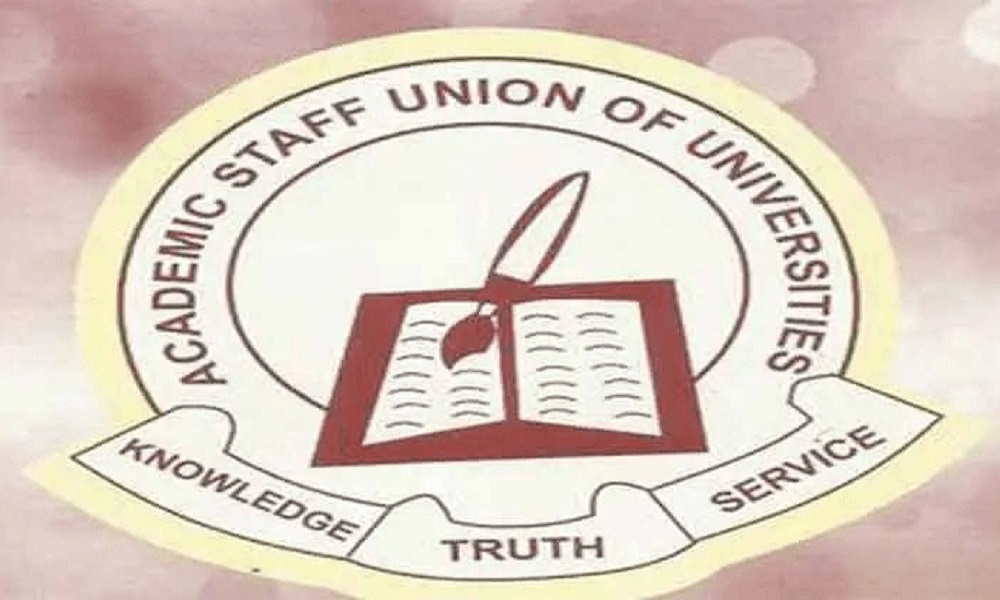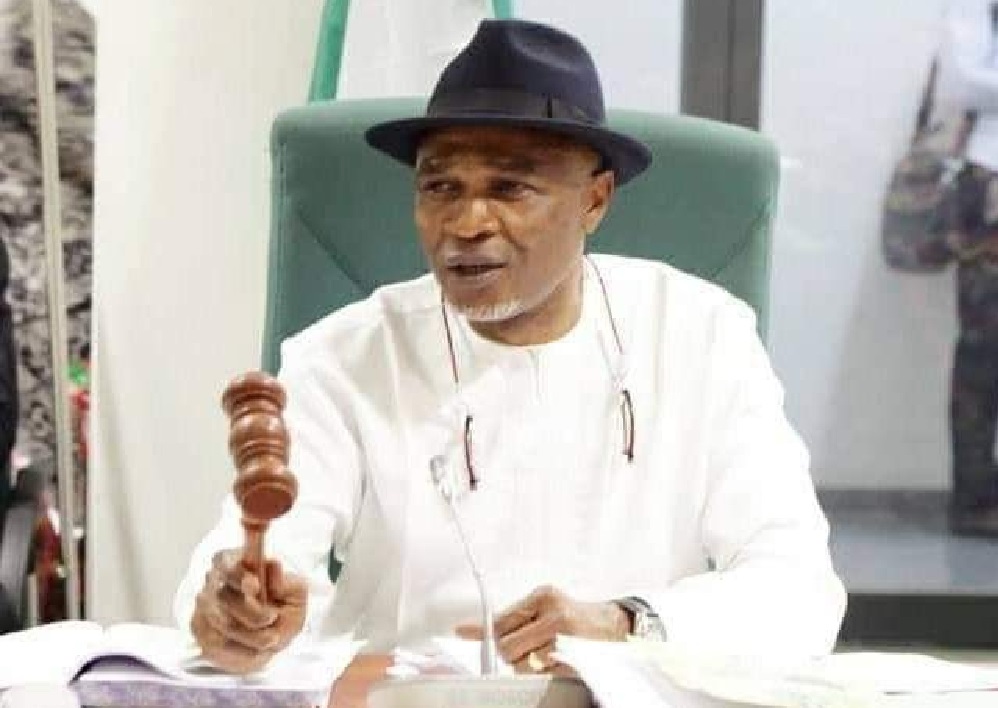News
Many varsities will soon shut down over electricity tariff hike, ASUU warns

President of the Academic Staff Union of Universities (ASUU), Prof. Emmanuel Osodeke has said most Nigerian universities are on the verge of shutting down over the unbearable cost of electricity.
Prof. Osodeke said this during the opening of a two-day national conference convened by ASUU in Abuja with the theme: “Nigeria in a State of General Crisis: The Search for a New Path to Development,” on Thursday.
The ASUU president said while public universities receive N15m monthly from the federal government as running costs, the electricity bills of some universities run between N200m to N300m monthly.
Osodeke said the classification of electricity consumers into bands has increased the cost of most universities, adding that the rise in electricity cost was hampering the administration of most public universities in the country.
The university lecturer said this has forced some universities to channel their internally generated revenue to the running of their operation.
He said: “We are so challenged. But let me give you a quick example, the University of Lagos; University of Ibadan; Ahmadu Bello University, and the University of Nigeria, Nsuka. What they get from the government account for the overhead running of the university in a month is N15million. Meanwhile, the University of Lagos needs about N200 million naira to pay the electricity bill. It is this IGR that you talk about that is used to pay for the electricity.
“One of the universities today is closing down because they have been given an electricity bill of N300 million. What the government gives you to run the system is N15 million, and you get a bill for electricity alone of N300 million. Where is that money coming from? You have to run the laboratories. You have to run the diesel. You have to run the fuel for vehicles.
“That is where the IGR is going today. Not being able to run the system, to buy books in the library, to run your library, to earn those things. They are all part of their so-called IGR, and that is what they talk about. But you know what? A government that will give just N15 million for UNILAG to run, will in turn, give one Senator N21 million a month. The government gives a system N15million, but an individual gets N21million. That’s where our priority is.
“For whatever reason, they have refused to fund the university systems as it was in the earlier part of our history.
“From the way we are going, if nothing is done, many universities will close up because they can not afford the so-called Band A and Band B.”
Lamenting the dire situation of some academics in the country, the ASUU President said farming has become even more lucrative for lecturers, especially when a professor is left at the mercy of earning less than N300,000 per month and still has to cater for his family and publish journals.
Osodeke also criticised the proliferation of universities in the country, warning that they were merely running on skeletal manpower as most of the lecturing staff were out of the country searching for greener pastures.
He described the situation within the university system as very disturbing, stressing that most of their members are dropping dead.
ASUU also revealed how rigging is perpetrated by the political class, which warranted their members to stay away from electoral processes after the 2015 general elections.
According to Osodeke, academicians still presiding over elections are doing so in individual capacities, not as ASUU members.
He revealed that what the politicians do is bring figures from the polling units and give them to the presiding officers to announce.
He said rigging will be eliminated if members of ASUU are involved in the entire electoral process starting from the ward levels to local governments and the national collation of results.
Osodeke said: “ASUU was asked to help conduct the (2015) election. That first election went well, though there were still issues. When the elections were over, we called for a meeting and put up a committee together to study what happened.
“By the time they finished, they came with a report that even though our colleagues are involved in the election, rigging is done at the polling booths and local government collation centres.
“What our colleagues do is just collate what they have been given. They give you a report, and you just write it down. So we found out that rigging is done there, and given to our members to collate.
“We went to INEC and asked that we participate from the polling unit up to the final stage and they refused. We wrote to them that ASUU, as a body, will not participate in any election.
“If you recall, before any election in this country, we will come out with a statement that we are not part of the election, but our members are Nigerians. They have their freedom, and they can go and do anything.”
Acting Executive Secretary of the National Universities Commission, Chris Maiyaki charged the university lecturers to come up with solutions to the challenges facing the country.
Maiyaki said the present challenges facing the country required a multi-stakeholder approach which members of the academia are capable of championing.
He said academics lead not only in ideas and academic theories but also in critical matters like crafts, politics and socio-cultural matters, religion, and morality.
Maiyaki said: “Therefore is no class of persons more qualified than members of the Academic Staff Union of Universities in the urgent task of searching for solutions to the current predicament of Nigeria and Nigerians. The challenges we face as a nation require rigorous analysis and the development of actionable solutions.
“I am absolutely confident that you have the intellectual resources, that your members are uniquely positioned to execute this charge in facilitating conversations about taking our nation to a more sustainable and more progressive future.”
President of the Nigeria Labour Congress, Joe Ajaero said leaders in the country go abroad to receive medical treatment.
“When they (leaders) are coming back they come up with neoliberal policies and impose it on us. Today, Nigeria is running cap in hand to collect money from the International Monetary Fund. When you talk they place charges on my head – terrorism financing, cybercrime, and others,” he said.
He accused the federal government of failing to fulfill all the agreements it entered with organized labour.
The NLC leader said the government has stopped the payment of the N35,000 wage award since February and has also failed to fulfill its promise to make the refineries work.
Ajaero urged all the university-based unions to come together and declare a day of national action to force the government to reposition the education sector.
News
Reps Minority Caucus decries incessant tanker fire explosions, call for decisive actions to avert future occurrences

Following the twin tanker fire explosions which occurred last weekend in Ibadan, Oyo state, and Akwanga, Nasarawa state, the Minority Caucus in the House of Representatives expressed shock and sadness over the unfortunate incidents.
The Reps Minority Caucus made this disclosure in a statement jointly signed by leaders of the caucus: Rep. O.K Chinda
(Minority Leader) Rt. Hon. Dr. Ali Isa J.C (Minority Whip) Rt. Hon. Aliyu Madaki (Deputy Minority Leader) Rt. Hon. George Ozodinobi
(Deputy Minority Whip) on Monday stating that:
“Thankfully, no lives were lost at the two avoidable incidents. But it is painful that an unspecified number of vehicles, shops, motorcycles, and other properties worth hundreds of million naira were lost; particularly at the Ibadan incident.
“It is more worrisome that this is coming at a time that the economic hardship is approaching it’s zenith in Nigeria.
The Caucus recalls that after the January tanker fire explosion in Niger state, where lives of Nigerians and humongous properties were lost, it called on the Federal Government for necessary actions.
“Happily, the government resolved to ban fuel tankers with capacities exceeding 60,000 litres of petroleum motor spirit (popularly called petrol) from operating on Nigerian roads with effect from March 1, 2025.
“However, it is disheartening that, from reports across the country, many fuel tankers are yet to comply with the directive. More ludicrous is that the Nigerian Midstream and Downstream Petroleum Regulatory Authority (NMDPRA) responsible for enforcing the regulation is yet to comply with the presidential directive; about six weeks after the kick-off date.
Apparently disturbed about the frequency of tanker explosions across the country; almost becoming permanent fixtures on challenges bedeviling Nigeria, and the damaging effects on our people, the environment, and national development, the Caucus strongly calls for deliberate and decisive actions to stem the same by the bud.
” We call on the federal government for more pro-active measures that will not only avert future occurrences but stop tanker explosions in the country.
“From reports, the Ibadan incident happened as the driver encountered difficulties navigating deteriorated portions of the Toll Gate end of the Lagos-Ibadan expressway.
“Given the deplorable state of this road, and similar others, the Caucus urges the Federal Roads Maintenance Agency (FERMA) to carry out immediate rehabilitation works on these roads.
“The Caucus shall initiate, collaborate, and pursue every legislative action that will secure the safety of our people, and properties; which is the main purpose of government.
News
Don’t sabotage war on terrorism, NEYGA warns, lauds DSS

By Francesca Hangeior
The Northern Ethnic Youth Group Assembly (NEYGA) has cautioned against actions that could undermine Nigeria’s fight against terrorism, expressing concern over what it described as an emerging campaign to discredit the Department of State Services (DSS) and weaken public confidence in the agency.
In a statement issued Tuesday in Abuja, NEYGA spokesperson Ibrahim Dan-Musa commended the DSS for its vital role in ensuring national stability and combating banditry and terrorism.
Dan-Musa dismissed recent reports allegedly from unidentified local hunters accusing DSS operatives of misusing advanced telephone tracking technology, describing them as baseless and part of a smear campaign.
“The reports claimed that the technology, meant to aid in the rescue of kidnap victims, was instead being used by some operatives to extort money from criminals in exchange for concealing their locations.
“While we do not, and certainly cannot, speak officially for the DSS, we must state without fear of contradiction that such stories were fabricated to tarnish the agency’s image.
“We are not surprised that this falsehood is being spread by the same self-styled activist who falsely accused the DSS of abducting civil rights activist, Comrade Usman Okai Austin, to serve certain political interests. Comrade Austin has since disowned the said activist and publicly apologized for his unfounded allegations against the northern governor.”
The group also recalled how the same “activist,” in a viral video, falsely accused the DSS of invading the Federal High Court on the day the Economic and Financial Crimes Commission (EFCC) arraigned former Governor Yahaya Bello.
“It turned out that no DSS operative was anywhere near the court on the said day,” the group pointed out.
“We cannot thank President Bola Tinubu enough for appointing a thoroughbred professional like Mr. Tosin Ajayi as Director General of the DSS. From the agency’s remarkable exploits since Ajayi assumed office, we are proud to say that President Tinubu made an excellent choice.
“We in the North are particularly pleased with the relentless efforts of the DSS to make the North and the rest of Nigeria safer. Very recently, Governors Dauda Lawal of Zamfara and Ahmadu Fintiri of Adamawa publicly praised the DSS—not only for seizing large caches of arms and arresting or neutralizing scores of bandits and kidnappers, but also for securing the release of kidnapped Roman Catholic priests,” the group said.
“All of these achievements poke holes in the tissue of lies being peddled by the self-styled activist,” it stressed.
The group further highlighted an incident from 2018, when a court awarded ₦10 million in damages against the DSS over the 2016 accidental shooting in Bauchi of a businessman originally from Sokoto.
“No Director General agreed to pay the compensation until Tosin Ajayi came into office. Not only did he pay the ₦10 million, he doubled the amount. Nothing could be more humane. We deeply commend DG Ajayi for that,” the group said.
NEYGA also recalled recent public apologies issued by several media outlets for falsely reporting that the DSS stormed the Lagos State House of Assembly.
“The DSS’s acceptance of the apologies and decision to drop charges against the media houses is a sign of civility by the secret police, which we wholeheartedly commend,” the group added.
“We had imagined that, as a serial contestant for the office of President, this activist would be more circumspect, lie less, and demonstrate greater patriotism in the way he speaks about Nigeria—especially if, by some chance, he ends up occupying the nation’s highest office one day. Sadly, that has not been the case,” NEYGA said.
“We commend the maturity of the DSS leadership for enduring the barrage of lies constantly thrown at it by these so-called activists. Nigerians have seen through their antics and know they do not mean well for our beloved country.
“We urge the DSS not to be distracted by these merchants of falsehood and to remain steadfast on the path of making Nigeria safer,” the group said.
News
Insecurity: PDP raises alarm over ceaseless killings in Nigeria

* Urges Aiyedatiwa to be proactive in his duties
By Francesca Hangeior
The Peoples Democratic Party (PDP) in Ondo State has urged Gov. Lucky Aiyedatiwa to be alive to his duties of safeguarding the lives and property of residents of the state.
The party’s Director of Media and Publicity in the state, Mr Leye Igbabo, stated this in a statement issued on Tuesday in Akure.
Igbabo said that the party was alarmed by the alleged ceaseless killings of hapless residents of the state by gunmen.
He said that victims of such killings were lawfully engaging in their daily activities needed to bring food to their tables.
“The party cannot, in all honesty, find reasons why such assailants could operate without any form of resistance for months running, in a state where there is said to be a valid government in place.
“Gov. Aiyedatiwa has indeed failed in his constitutional duty as enshrined in Section 14(2)(b) of the 1999 Constitution (as amended), in that he can no longer secure and protect lives and property of citizens of Ondo State.
“It is heart-wrenching to note that in less than one month, about 50 persons have been gruesomely massacred in various settlements within the state,” he said.
Igbabo expressed concerned that no arrest or prosecution had been made in the wake of these incidents.
He said that the party had been wondering if a government still exists in the state in the face of what he described as unprovoked and unrestrained killings.
“These killings are one too many and indicative of helplessness, hopelessness and huge compromise of those in the corridor of power in Ondo State,” he stated.
Igbabo urged President Bola Tinubu to urgently address the situation, as it appeared that the state government was incapacitated in tackling the menace.
-

 News6 hours ago
News6 hours agoSHOCKING! One month after giving birth, woman discovers another baby in her womb
-

 News12 hours ago
News12 hours agoPeter Obi speaks as Benue govt. blocks humanitarian visit
-

 News5 hours ago
News5 hours agoAngry investors raid CBEX office, loot assets in Ibadan after digital Platform crash
-

 News12 hours ago
News12 hours agoFUOYE VC suspended over sexual harassment allegations
-

 Politics5 hours ago
Politics5 hours agoIgbo Youths Set To Mobilize 5 Million Man-March In Support Of Tinubu, Kalu
-

 News12 hours ago
News12 hours agoPower Generation Companies Express Concern Over N4 Trillion Unpaid debts, Warn Imminent Shutdown
-

 News5 hours ago
News5 hours ago‘Not something I’d wish on anyone’ — Melinda Gates opens up on divorce
-

 Opinion22 hours ago
Opinion22 hours ago“Chief. Dr. Ekuogbe Akpodiete; A Philanthropist, Lawyer, and Statesman”






